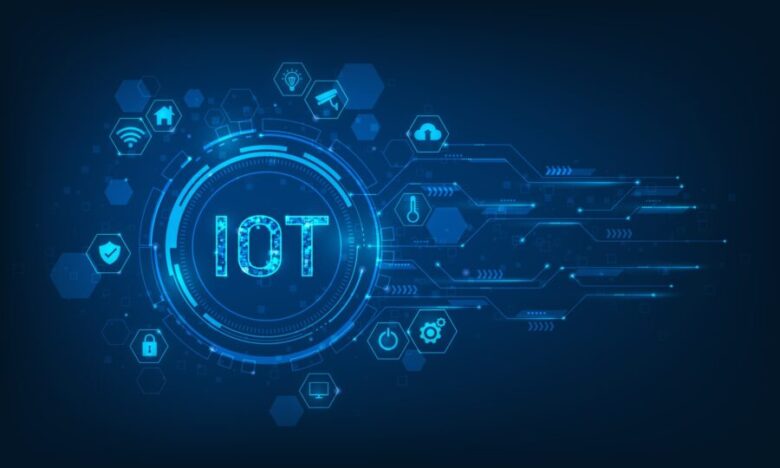IoT (Internet of Things) is changing how businesses around the world operate. IoT allows for new levels of automation and efficiency by connecting physical devices with the internet. IoT is transforming industries such as manufacturing, healthcare, and retail. It also has a positive impact on agriculture. These devices collect data, but they also monitor and manage business operations in real time. This leads to improved productivity and lower operational expenses.
Real-Time Data Allows Smarter Decisions
IoT is a powerful tool for businesses. It allows them to access real-time information. In the past, companies relied heavily on manual reporting or historical data, which caused many delays in making decisions and inaccurate forecasts. IoT devices collect data continuously from machines, environments, and customer interactions. The data is analyzed to gain meaningful insights about how an organization is performing and what improvements could be made. Real-time feedback enables managers and team leaders to make faster, smarter decisions to drive productivity, reduce wastage, and improve customer service.
Automate Routine Tasks
Automation is an important contributor to productivity. IoT allows automation on a whole new level. IoT devices are capable of automating repetitive and routine tasks, from smart lighting in office buildings and temperature control in factories to automated machinery. It allows employees to concentrate on more important tasks that require creativity, decision-making, and innovation. This minimizes the errors that manual work often causes. Businesses that use IoT to automate their operations experience faster operations and reduced labor costs, as well as a reduction of operational bottlenecks.
Improved Asset Management and Inventory Management
IoT has proven to be a game changer in the management of physical assets and inventories. Smart sensors and RFID tags can be attached to machines, tools, or products in order to track their location and usage. This allows companies to avoid loss due to theft, misplacement, or misuse. IoT in retail and warehousing ensures stock levels are accurate, replenishment is done on time, and stockouts are reduced. Industries like construction and logistics, which constantly move and use equipment, find IoT particularly useful. It can monitor maintenance schedules, predict repairs, and minimize downtime.
Improving Workplace Safety and Compliance
IoT can play a major role in creating a safer working environment. Employee safety is the top priority for any business. Wearable IoT can monitor vital indicators of workers who have physically demanding jobs and notify supervisors if abnormal readings occur or a potential health risk is present. Sensors can be used to detect hazardous gases, equipment failures, or structural weakness in hazardous work environments and send immediate warnings to staff. IoT also helps businesses comply with industry regulations by documenting automatically safety checks, equipment use, and environmental conditions. It not only protects employees, but it also lowers the risk of fines or legal troubles.
Optimizing Energy and Resource Usage
Often overlooked, energy management significantly contributes to cost reduction and environmental impact. IoT devices such as smart thermostats and lighting systems can optimize energy and resource use. These systems adapt to patterns of usage and save energy. Such optimizations can result in substantial savings for large campuses or facilities. Businesses that are concerned about sustainability can also benefit from IoT. They can track their consumption patterns and take steps towards greener operations.
Remote Monitoring Capabilities
The ability to remotely monitor and manage systems has never been more important. IoT tools allow remote monitoring and diagnosis of machines, equipment, and systems. This feature is particularly useful for industries that have large-scale operations and equipment in remote locations. IoT can be used by a company that has wind turbines located in various geographic locations to monitor their performance and detect problems without the need for technicians on-site. It not only saves time but also money in travel and maintenance expenses.
Boosting Agricultural and Industrial Efficiency
IoT plays a growing part in increasing productivity in industries like agriculture and heavy industry. Smart sensors in agriculture can monitor soil moisture and weather conditions as well as crop health. This helps farmers make more precise decisions regarding irrigation, fertilization, and harvest. It leads to increased yields, less waste, and a better use of resources. IoT is a powerful tool for manufacturing and heavy industry. It allows predictive maintenance, real-time quality control, and process optimization. Sensors on machines can alert technicians to upcoming failures and quality deviations. This allows for quick fixes and uninterrupted production.
Conclusion
Integration of IoT into business operations has transformed the way companies view productivity. IoT creates a more efficient and connected business environment by enabling real-time information collection, automating repetitive processes, optimizing resource use, and improving both employee and client experiences. IoT-enabled companies not only improve their operational efficiency, but they also position themselves for future growth in a market that is becoming increasingly digital and competitive. IoT will become increasingly important to business success as technology advances and becomes more widely available.
FAQs
1. Can Small Businesses Use IoT Solutions?
Small businesses can also benefit from IoT. IoT tools for inventory tracking, energy management, and customer engagement are affordable.
2. Is IoT safe for business use?
IoT is a wonderful technology, but it can also pose security risks. Businesses must adopt strong cybersecurity practices to protect IoT and the data it handles.
3. What is the role of IoT in cost reduction?
IoT can reduce costs by optimizing the energy usage, minimizing downtime of equipment, automating manual processes, and preventing mistakes through accurate real-time monitoring.
4. Is IoT just for tech companies?
This is not the case. IoT is widely used in many sectors, including agriculture, retail, transportation, and healthcare. Any business that benefits from data and automation can utilize IoT.
5. How will IoT affect business in the future?
IoT will be a part of the future business landscape, with greater automation, better AI integration, smarter analysis, and wider adoption across industries. This will lead to higher productivity and innovation.




